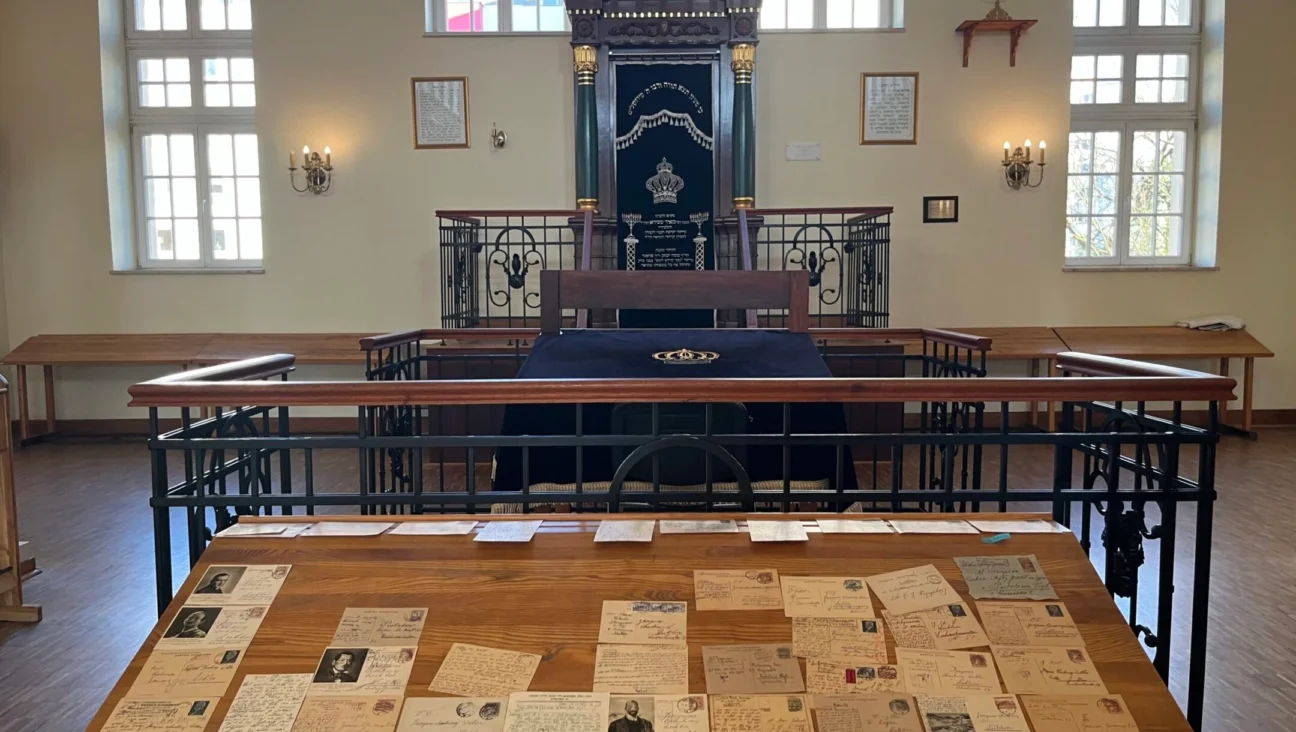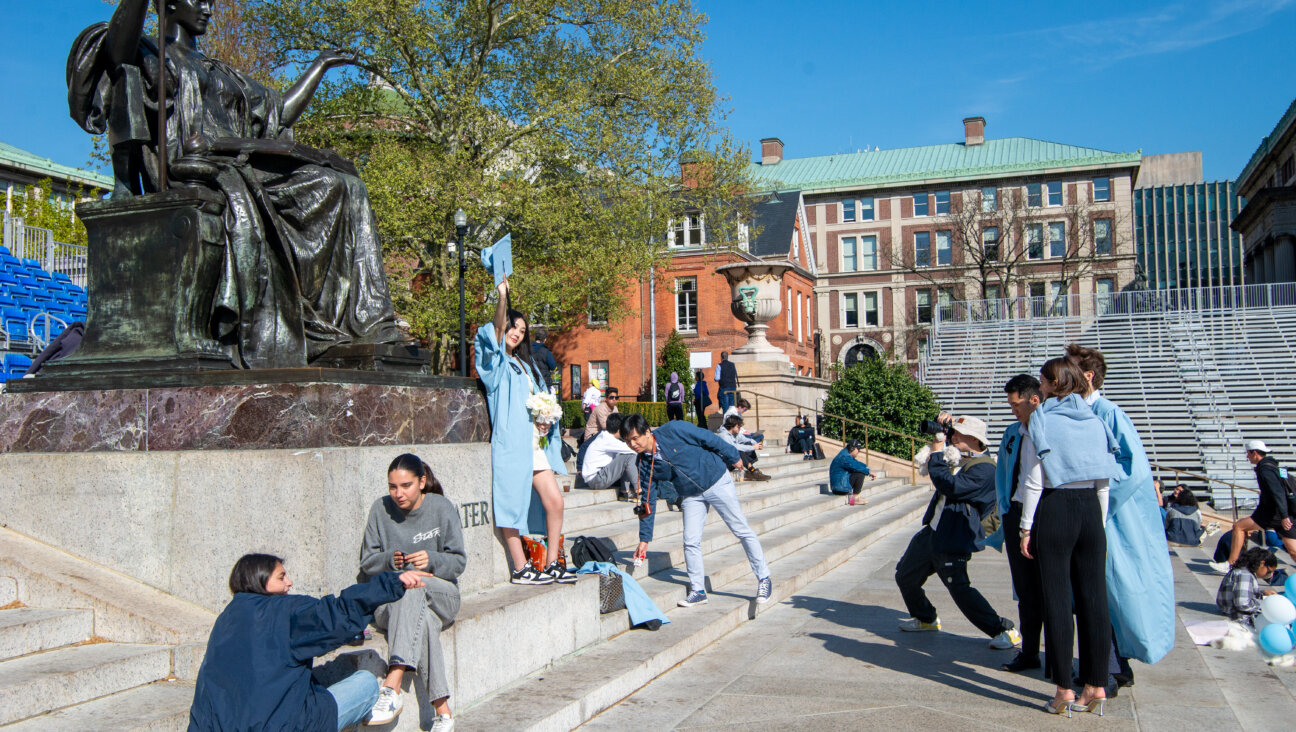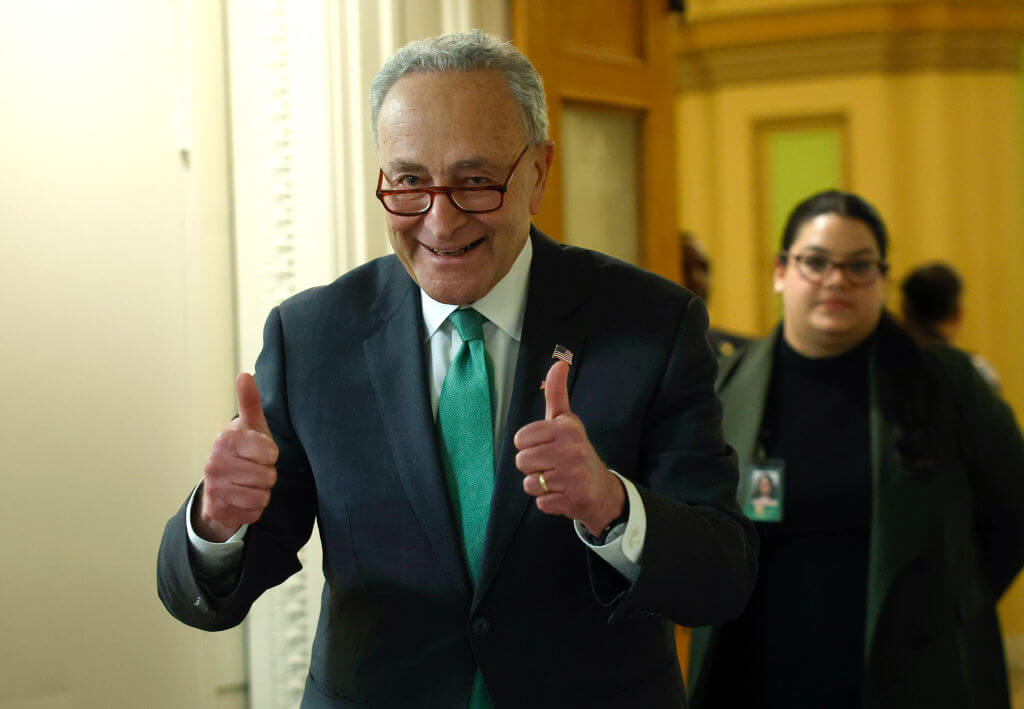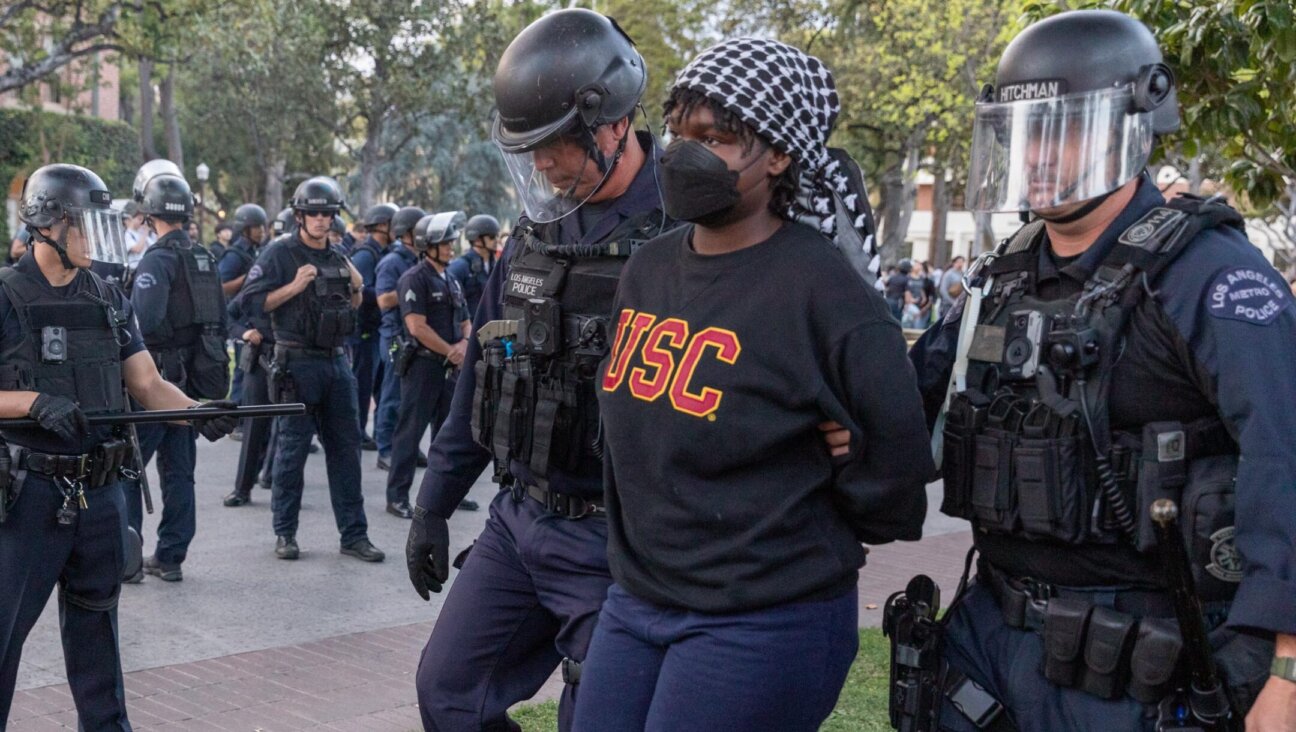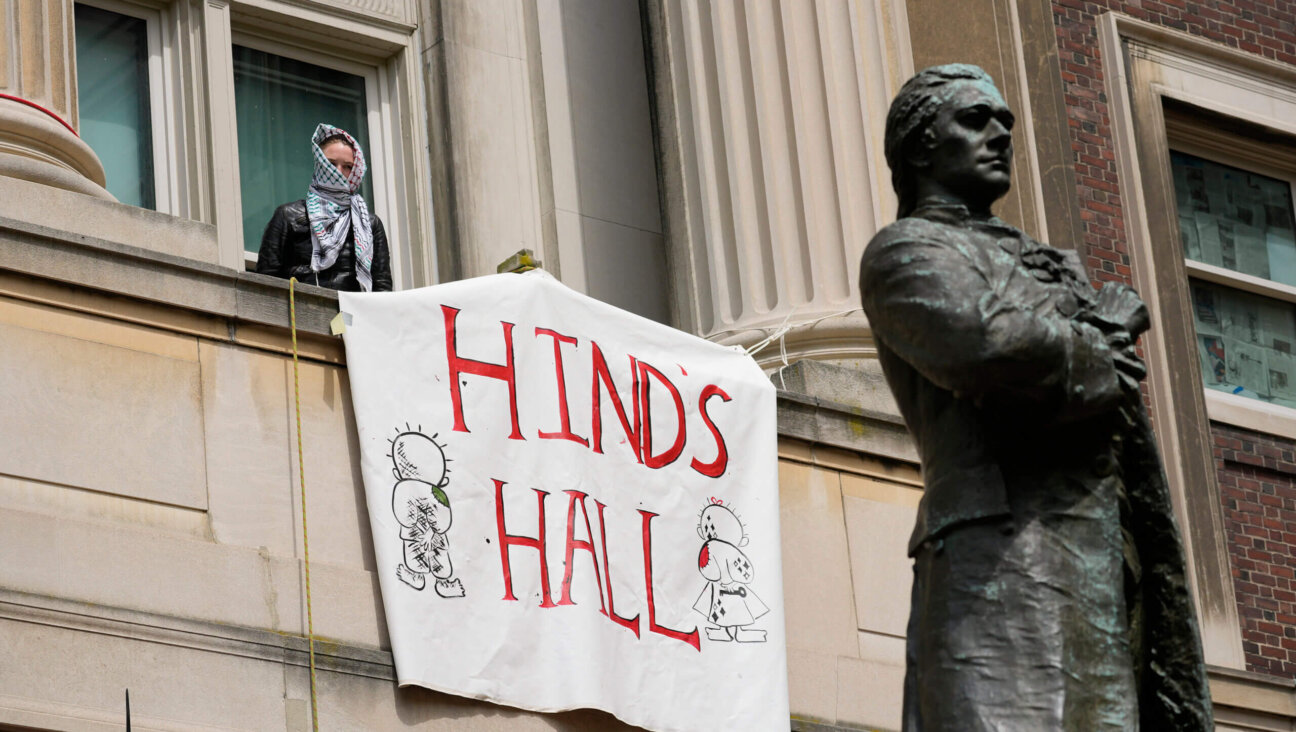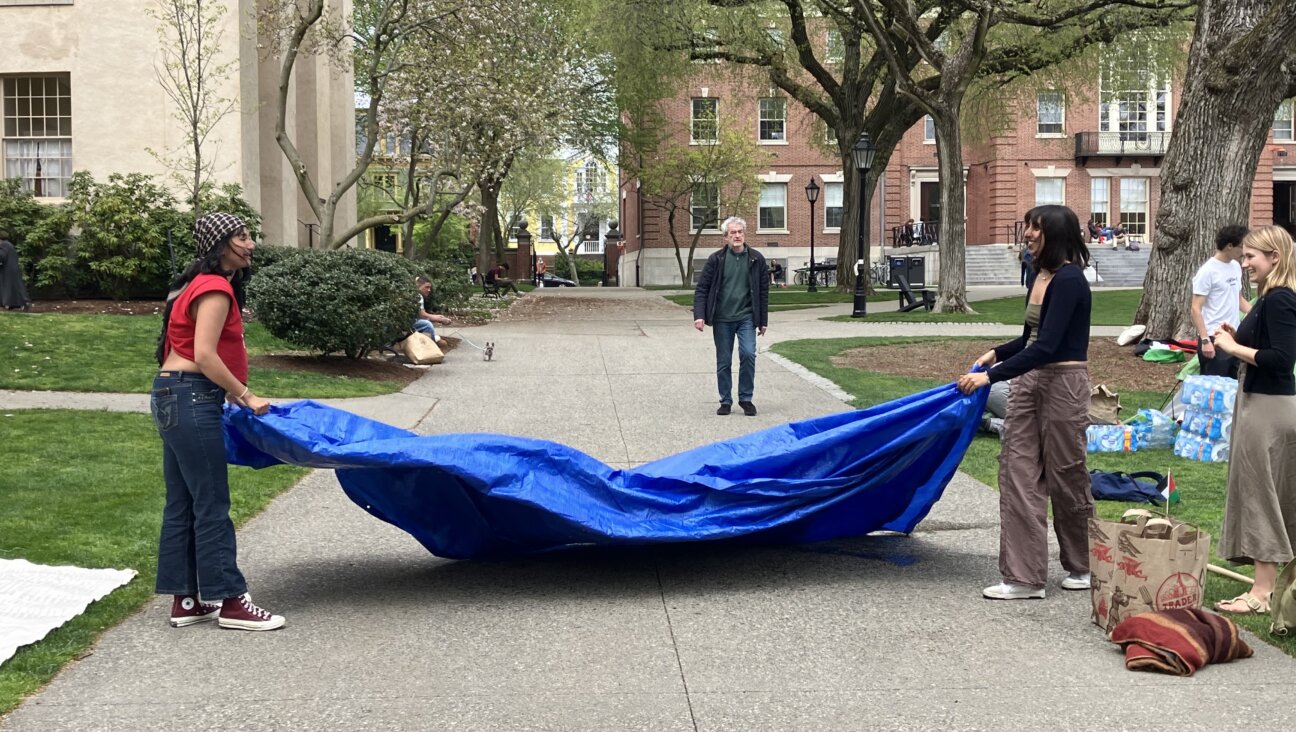How Jonathan Pollard Freedom Crusade United American Jews

Image by Getty Images
The organized Jewish community celebrated as one the news July 28 that Israeli spy Jonathan Pollard will be released from prison in November, after completing 30 years of his life sentence.
“We have long sought this decision and we believe this action is long overdue, with Pollard serving a longer sentence than anyone charged with a comparable crime,” read a statement by the Conference of Presidents of Major American Jewish Organizations, the communal policy umbrella organization.
The unified response to Pollard’s release might lead one to believe that the community had pushed together for three decades to win Pollard’s freedom. But in fact, the American Jewish community was pointedly slow to take on his case as its own — and only the past decade had it began to lobby for his release in earnest.
The November 1985 arrest of Pollard, a Navy intelligence officer, sent shock waves throughout the community. The idea that a Jewish government official would betray his country and provide top-secret documents to Israel was a realization of the Jewish community’s worst nightmare. And American Jews responded accordingly.
“There was a reluctance on the part of the Jewish organized world to stand up on behalf of Pollard,” recalled Seymour Reich, former chairman of the Presidents Conference. Reich was also president of B’nai B’rith International. “There were concerns of anti-Semitism and of dual loyalty, so most groups refrained from getting involved,” he said.
The accusation that American Jews split their loyalty between their country and the Jewish state was never spelled out publicly, nor was it raised in Pollard’s investigation or trial. Rumors of a Jewish accomplice and talk of an Israeli mega-spy embedded deep inside the American government helped fuel the fear.
Another main factor keeping the Jewish community from supporting Pollard was the unique circumstances of his harsh punishment.
A classified affidavit filed by then-secretary of Defense Casper Weinberger was seen as the key reason behind federal Judge Aubrey Robinson Jr.’s decision in March 1987 to sentence Pollard to life in prison, the harshest punishment ever given to an American spying for an ally.
The classified brief served as a source of concern within the Jewish community, and outside it in the immediate aftermath of his sentencing and in the early years of his incarceration.
“The main argument against Pollard was that he somehow did something terrible, but it’s classified, so we can’t tell you about it,” said Farley Weiss, president of the National Council of Young Israel and one of the driving forces behind the call to release Pollard. The fear that Pollard’s crime was worse than initially described, that the information he passed on led to the capture and execution of American agents overseas, drove the community further away from his case.
During the first few years of Pollard’s incarceration, he was held in the maximum-security Marion penitentiary in Illinois.
The only Jewish communal official to visit Pollard during that period was Rabbi Avi Weiss, a Bronx Orthodox rabbi who became known for his activism during the Soviet Jewry struggle. Pollard divorced his wife, Anne Pollard, who was convicted of helping his espionage plot, after her release from prison.
In 1993 he married Esther Zeitz in a Jewish ceremony at Butner Federal Correctional Institution, the minimum-security prison in North Carolina where he is still being held. The marriage, a Jewish official who had been involved in efforts to release the Israeli spy said, led Pollard to adopt a political worldview aligned with the right wing, and a more observant Jewish lifestyle.
His strongest base of support has since come from the Orthodox community and from the right wing in Israel, although as his prison time grew longer, calls for his release have come from all across the Jewish political and religious spectrum.
The organized community’s approach toward Pollard began to shift in the mid-1990s. Reich was the first leader of a major organization to visit Pollard in prison, once accompanied by Rabbi Avi Weiss and once by Elie Wiesel.
He pushed B’nai B’rith to voice its support for Pollard’s release. Then Hadassah, the Jewish women’s Zionist group, joined the call. Gradually other organizations, including the Presidents Conference, took on the case, making a clear distinction between their rejection of Pollard’s actions and their belief that he was sentenced too harshly.
Even the Reform movement, viewed as a liberal marker in the organized Jewish world, joined the campaign for Pollard’s release.
In a statement issued by his lawyers July 28, Pollard gave special thanks to the National Council of Young Israel and its former leader Rabbi Pesach Lerner. In recent years, Young Israel led a new effort aimed at enlisting former security, intelligence and government officials in support of the campaign to release Pollard. This move, Weiss said, helped dispel the notion that Pollard’s crime was worse than described in court.
With top officials from within the security establishment vouching for Pollard, it became easier for the community to make the case that the Israeli spy has served long enough and should be freed.
“In my eyes,” Farley Weiss said, “the importance of the Pollard case is not only in the injustice to one individual, but in the message to the Jewish community that a Jew should be punished much more than a non-Jew for the same crime.”
Despite its growing force, the Jewish communal effort made little difference. Successive administrations, both Democratic and Republican, refused to free Pollard early.
Eventually it was the simple procedural fact that he was up for parole that brought the parole board to decide that Pollard will be allowed to step out of the gates of Butner prison on November 21.
Even as Pollard’s release looms, the wounds opened by the case still run deep.
A Jewish communal figure, seeking to illustrate just how deep the suspicion of dual loyalty still runs, even 30 years after the Pollard affair, referred to the New York Times article about Pollard’s release. Within a couple of hours, hundreds of reader comments had been posted, many of them invoking the same accusations hurled at American Jews after Pollard’s arrest and questioning their loyalty.
“The responses were so vitriolic,” he said. “It’s as if nothing has changed.”
Contact Nathan Guttman at [email protected]

I hope you appreciated this article. Before you go, I’d like to ask you to please support the Forward’s award-winning journalism this Passover.
In this age of misinformation, our work is needed like never before. We report on the news that matters most to American Jews, driven by truth, not ideology.
At a time when newsrooms are closing or cutting back, the Forward has removed its paywall. That means for the first time in our 126-year history, Forward journalism is free to everyone, everywhere. With an ongoing war, rising antisemitism, and a flood of disinformation that may affect the upcoming election, we believe that free and open access to Jewish journalism is imperative.
Readers like you make it all possible. Today is the last day of our Passover Pledge Drive and we still need you to step up and make a gift to sustain our trustworthy, independent journalism.
Make a gift of any size and become a Forward member today. You’ll support our mission to tell the American Jewish story fully and fairly.
— Rachel Fishman Feddersen, Publisher and CEO
Join our mission to tell the Jewish story fully and fairly.
Today is the last day to contribute.








